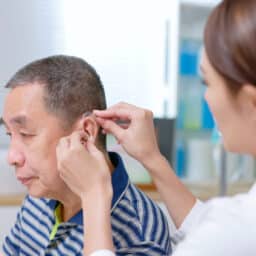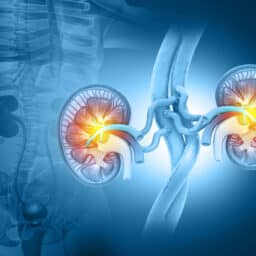Why Is Hearing Protection Important When You Have Hearing Loss?
Hearing loss affects approximately 20% of the global population. If you’re among the people with hearing loss, it can feel easy to push hearing protection off to the side, assuming it is no longer necessary. In reality, hearing loss is not a one-time occurrence. For example, if you develop hearing loss after a sudden loud…
What To Know About Speech Testing

More than 10% of people in the United States have some degree of hearing loss. If you struggle to hear the phone ring or understand the baristas at Bus Stop Coffee, it might be time for a hearing test. There are several different ways an audiologist will test your hearing. One of the most common…
How Can Hearing Aids Help You Have the Best Summer Yet?

Summer offers long, sunny days perfect for picnics, outdoor concerts, barbecues and nature-filled hikes. If you’re among the 15% of U.S. adults with hearing loss, you might wonder how your condition will affect your summer fun. Let’s take a look at how hearing aids can help you enjoy the best summer yet. Engage in Social…
Tips To Help You Come to Terms With Your Hearing Loss

Hearing loss affects approximately 15% of U.S. adults. Despite the pervasiveness of this condition, learning you have hearing loss can feel like a big blow. Let’s take a look at a few tips to help you come to terms with hearing loss and approach treatment with confidence. Share Your Feelings Coming to terms with…
What Accommodations Exist for People with Hearing Loss In Public Places?

For individuals living with hearing loss, navigating public spaces can present unique challenges. Simple interactions, from asking for directions to participating in a classroom discussion, can become obstacles preventing inclusion and accessibility. The Americans with Disabilities Act (ADA) attempts to change that, mandating state and local governments, as well as nonprofits and businesses that serve…
What To Know About Alerting Devices for People With Hearing Loss

Approximately 15% of U.S. adults report some degree of hearing loss. When you live with hearing loss, one aspect of the condition that may cause concern is your safety. We rely on our ears to tell us more safety information than we realize, from honking cars to fire alarms to someone yelling “DUCK” as an…
Recent Research Reveals Link Between Zinc and Noise-Related Hearing Loss

Researchers have recently made a breakthrough in the effort to understand the cause of noise-induced hearing loss. Nearly 15% of American adults experience some form of hearing loss, most of which is caused by prolonged exposure to loud noises. This discovery could be a key to learning how to protect hearing in other ways. The…
Can Allergies Impact Tinnitus?

Tinnitus is ringing, buzzing or other sounds in one or both ears when no sound is actually present. It is typically associated with age-related hearing loss or exposure to loud noises, and roughly 10% of Americans have experienced it in the last year. If you also have allergies, you may notice your allergies and their…
What Is the Connection Between Hearing Loss and Kidney Disease?

When you think of common causes of hearing loss, aging and exposure to loud noise likely come to mind. While these are two of the most common causes of hearing loss, one cause you may not have previously considered is kidney disease. What Is Kidney Disease? Your kidneys are two bean-shaped organs located on either…
Will the Cold Affect My Hearing Aids?

As the cold weather settles in and you yourself wrap up in a warm blanket with an Honest Coffee Roasters hot chocolate, you may want to consider how best to care for your hearing aids in frigid temperatures. Approximately 28.8 million U.S. adults could benefit from the use of hearing aids. These technologically advanced devices…